Book Review: Bat Eater and Other Names for Cora Zeng, by Kylie Lee Baker
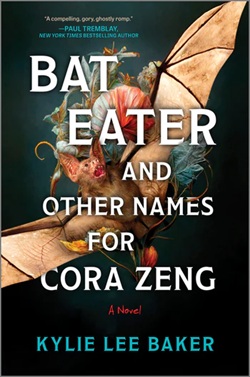
It sounds like it would be a downer, and it is indeed horrific and very depressing in parts, but it’s also gripping, active, exciting, sometimes very funny, loving, and hopeful.
Book Review: Wheel of the Infinite, by Martha Wells
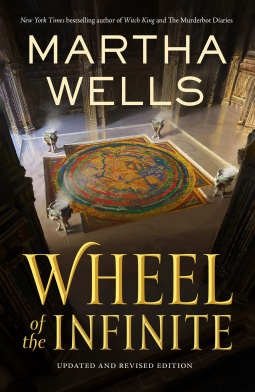
I urge readers who only know Wells for her wonderful Murderbot science fiction novels to give Wheel of the Infinite a try. It features Maskelle, a middle-aged, self-exiled priestess returning to the capital of the Celestial Empire for her Koshan religion’s most important rite.
Book Review: Laozi’s Dao De Jing (Ken Liu)
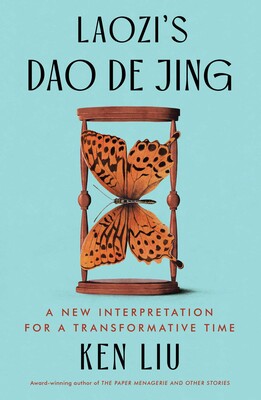
Translation is difficult, because each language encompasses at least one culture’s unique way of looking at the world. That’s hard enough when different words carry divergent assumptions from one language to another, and enormously more difficult when a word, as such, doesn’t even exist in the translated-to tongue. (And speaking of tongues, sometimes the same sounds aren’t even shared between languages, and some people can’t distinguish between sounds that change meanings completely!) Some words carry heavy cultural baggage, representing complex concepts in themselves. Obviously, Dao (which is often translated as “The Way” but which Ken Liu mainly leaves as just “Dao” so that readers are reminded of its multifaceted weight), De (often translated as virtue, or power, action, etc.), and Jing (often translated as book, or canon, treatise, etc.) are three such words. And when each sentence orchestrates interactions between complex concepts, conveying an entire treatise of philosophy and religion between cultures that share very little history and focus on different values might seem almost insurmountable. However, Ken Liu is far from the first person to attempt to translate Laozi’s Dao De Jing. The text, written in China during what Westerners label as the 4th century BCE, was first translated into English in 1868 by a Scottish missionary, and Wikipedia says it has been translated into Western languages more than 250 times. Indeed, I seem to remember a copy of Lao Tsu’s Tao Te Ching (different Romanized versions of the same Chinese words) floating around my college dorm, and I probably leafed through it then, although I can’t say I retained any of it. So, why is Simon and Schuster publishing a new version, Laozi’s Dao De Jing: A New Interpretation for a Transformative Time, by Laozi and Ken Liu, tomorrow (Aug. 20)? Publishers have their reasons; the more pertinent question to me is why anyone should read this in preference over any other versions. Liu himself would probably say that people should also read other versions in addition to his, as he himself is in conversation with interpretations across the centuries. (Although it’s not quite a conversation, because according to Liu’s interpretation of Laozi, the words of long-dead writers are merely the tracks of their thoughts, not the thoughts themselves.) For me, my primary reason for reading Laozi’s Dao De Jing: A New Interpretation for a Transformative Time was just that I wanted to see what Ken Liu had to say. I first became aware of Liu via a 2011 Podcastle audio “reprint” version of his deeply moving short story, “The Paper Menagerie,” and read his Paper Menagerie collection of stories later. He also wrote the Dandelion Dynasty silkpunk epic fantasy series. (He’s been a lawyer and a programmer, too.) Perhaps most relevantly here, works that he has translated into English, including “Folding Beijing” by Hao Jingfang, which I loved, and The Three-Body Problem by Liu Cixin, which I respected, have won major awards. I was fully confident that a Ken Liu translation would be both elegant and accessible, or as accessible as a translated foundational philosophical literary text could hope to be. Reinterpretations of older works have actually been pretty popular in science fiction circles in recent years; for instance, Zach Weinersmith’s and Boulet’s Bea Wolf was a 2024 Hugo finalist for Best Graphic Novel, just a few years after Maria Dahvana Headley’s Beowulf: A New Translation took the Internet by storm. However, despite being reviewed here at Skiffy and Fanty, mainly for the sake of its translator, Laozi’s Dao De Jing is not a work of speculative fiction. It’s a collection of many short chapters composed of short paragraphs advising how to think about oneself, the world, and how one should *be* in the world and interact with it (including other people) — or NOT interact, interspersed with sections where Liu explains his translation process and the choices he made. These interstitial sections start out quite long, involved, and frequent, and gradually become shorter, sparser, and rarer, as Liu becomes more comfortable with what he’s doing, and trusts that the readers will also acclimate themselves to the work and how he has been approaching it. In addition to translating individual words, Liu had to decide how the book actually began; and even before that, which version of “the book” to follow: the traditional “received text” or the text from scrolls discovered in the 1970s, which starts in the middle of the traditional text and puts the beginning half at the end, or the fragmentary text from bamboo slips found in a tomb in the 1990s. Liu wrote about applying his own knowledge of the constantly shifting writing/editing/publishing process in deciding how much weight to give each version, especially given Laozi’s own emphasis on true understanding and wisdom over the language that tries to encapsulate them. Because my review copy forbids quoting until verified with the finished book, I can’t share Liu’s translations or his own words. But I can tell you that it’s pleasantly fascinating to read both the translated text and Liu’s musings on their meanings, to wrestle with the writings and wonder how many of them, or how much of the whole, may be applicable to one’s own life. Many of the chapters contain apparent self-contradictions, or at least concepts that I find myself resisting, such as not valuing the rare and talented, or admonitions against taking actions (and I like the idea of leading by the example of non-conflict, but as a trained wordsmith, I find it hard to eschew arguments); however, I’m aware that this resistance may be because I don’t sufficiently understand these Daoist ideas yet. Liu himself says that when he started actually reading the book himself during the pandemic, instead of relying on quotes and cultural memories, he wanted to argue with it, and only later started to really accept it enough to converse with it. The book is pretty short if one simply measures by its 176 pages, but I strongly advise against rushing through it. So does
Author Interview: Bethany Jacobs (THESE BURNING STARS)

“It’s quite a saga, let me tell you! While I began THESE BURNING STARS just for fun, it slowly evolved into something complex and dense, like a house of cards.” — Bethany Jacobs
Book Review: The Armored Saint by Myke Cole
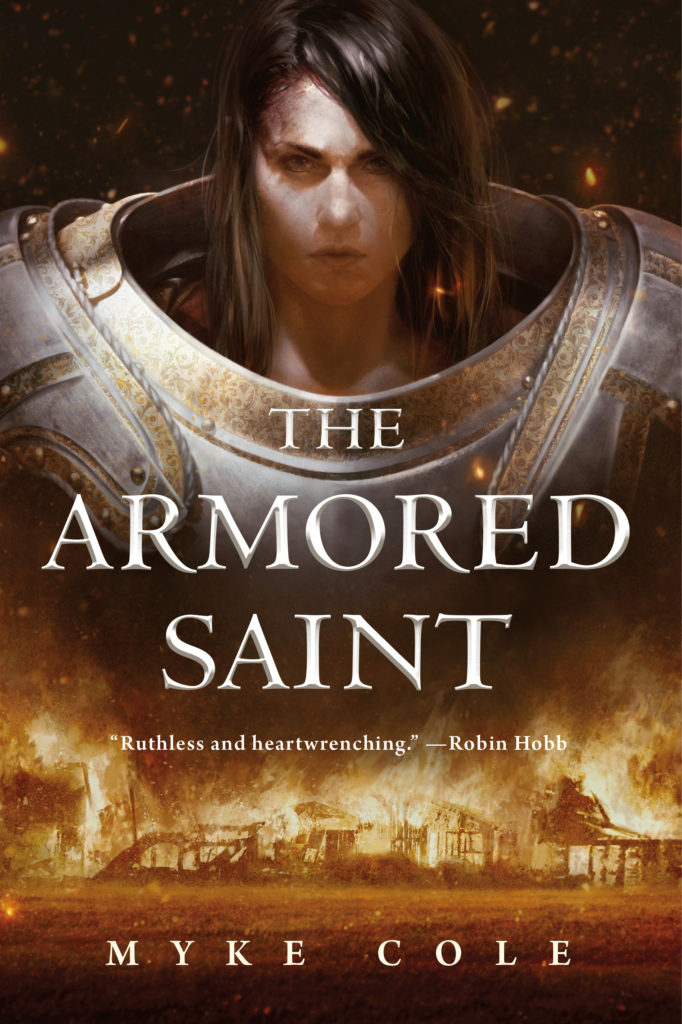
Suffer no wizard to live” Myke Cole is known for his service in the military, being the endless butt of jokes from Sam Sykes on twitter, Trigger Discipline, being a breakout star of the CBS TV show Hunted and writing modern fantasy about how the military would deal with the Return of Magic to the world (The Shadow Ops series). With The Armored Saint, Cole expands his oeuvre in the writing sphere to secondary world fantasy.
Guest Post: Religions on Mars, according to Me, by Mary Turzillo
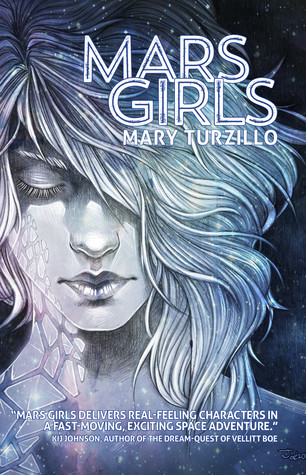
I truly don’t know if human beings need religions or ideologies, but history seems to indicate that we do. Every time a culture attempts to base its social values on entirely non-spiritual things, that very agnostic value-system becomes a new religion. People from England, France, Germany, etc. migrated to North and South America and to Australia in order to practice religions that were banned or looked down upon in Europe. Once they got to the New World, some of them started religions that did not harmonize with the social mores of their neighbors. Animal sacrifice, child marriage, and polygamy were three of the customs sanctioned by various religions that caused them to be ostracized. So the devotees moved further west, into less populated territory. I think this will happen when humans begin to migrate to the moon and Mars. I don’t discuss this much in Mars Girls, although I’m building another novel (Isidis Rising) where dissidents sequester themselves in a Martian enclave.

